Insights: Transition to Teal
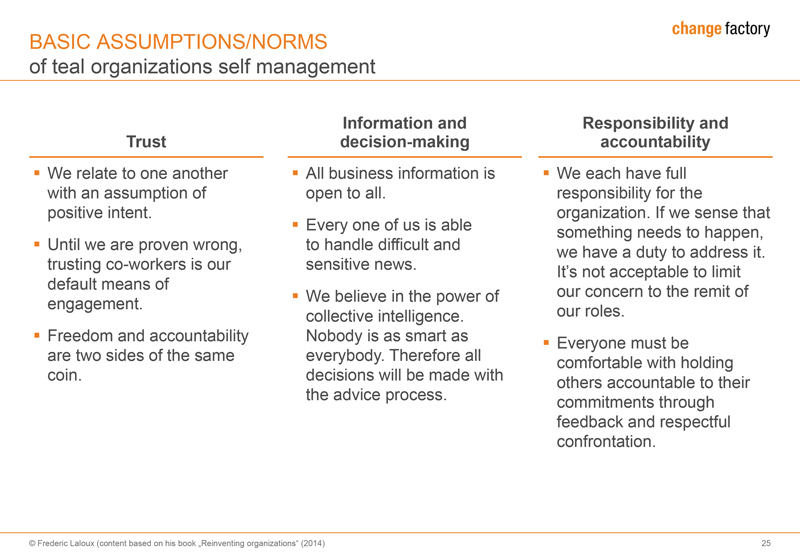
A fundamental shift has been taking place at C&S. Thanks to the work of Frederic Laloux, author of “Reinventing Organizations,” our team recognized an opportunity to evolve to a higher level of interaction and performance by focusing less on hierarchy and structure and more on purpose and personal passion.
Laloux outlines in his book how humans and organizations have developed over time and in my 30 years at C&S I have seen our company evolve through these stages.
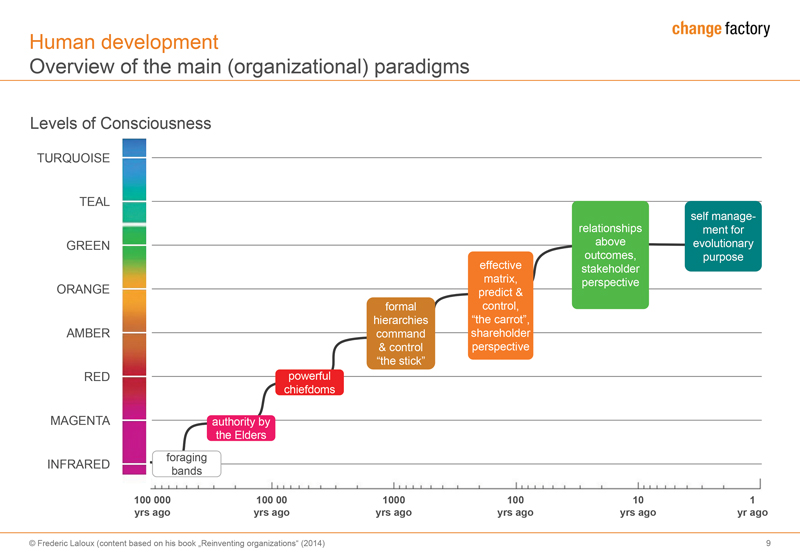
Command and control lives on the left of the graph and distributed leadership, self-management and empowerment lives on the right of the graph. While Frederic would tell us that there are applications for each of these organizational structures/behaviors depending on specific circumstances, if you are looking to unlock the life-energy in someone, aligning purpose with passion creates a wholeness that serves the individual and the organization.
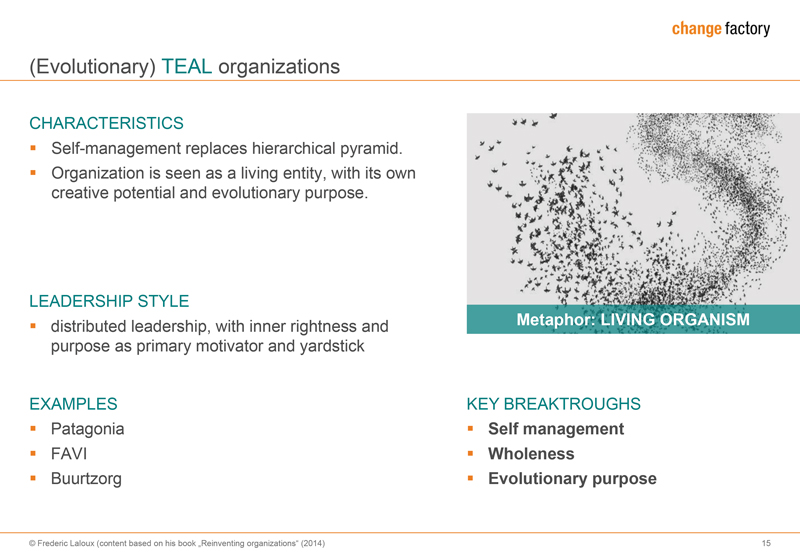
When adopting a teal approach to business there are certain behavioral norms that are required for it take root and grow in an organization. I like the natural metaphors when discussing teal because it is an organic process of change and development as opposed to a corporate directive. Certain conditions (or cultural norms) need to be in place for this growth to occur. Although Laloux identifies a number of these norms, we have locked into a few that are most important to us.
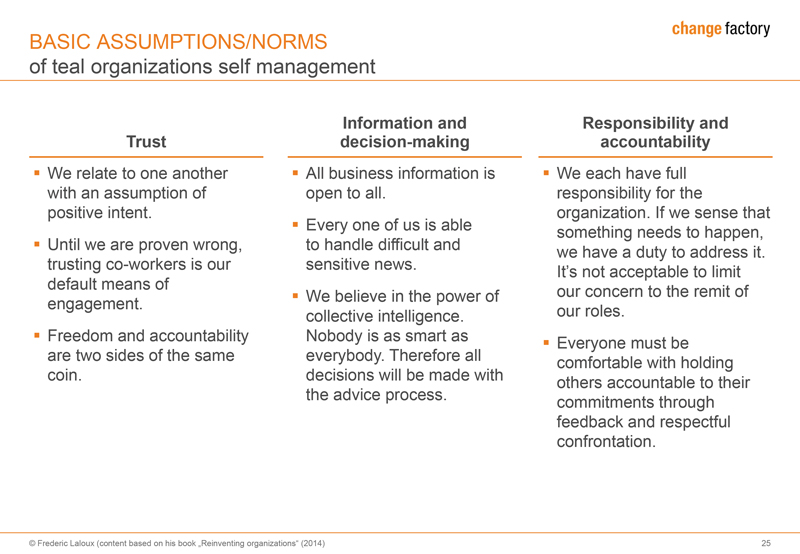
If trust does not exist, then a teal approach cannot survive. Neuroscience educates us that although the trust piece seems simple when you see it as defined above—it’s anything but. Since we have three brains (the instinctive, the emotional, and the thinking) we are hardwired to initially distrust. Why? Because our processing starts with the instinctive brain which is focused on survival. As an animal focused on survival we are looking for threats and with that comes an important survival instinct—distrust. We need to recognize this and let the natural brain processing occur that takes us through emotions and then finally to our thinking brain where thought processing, reason and judgement reside, which can override our emotions and instincts.
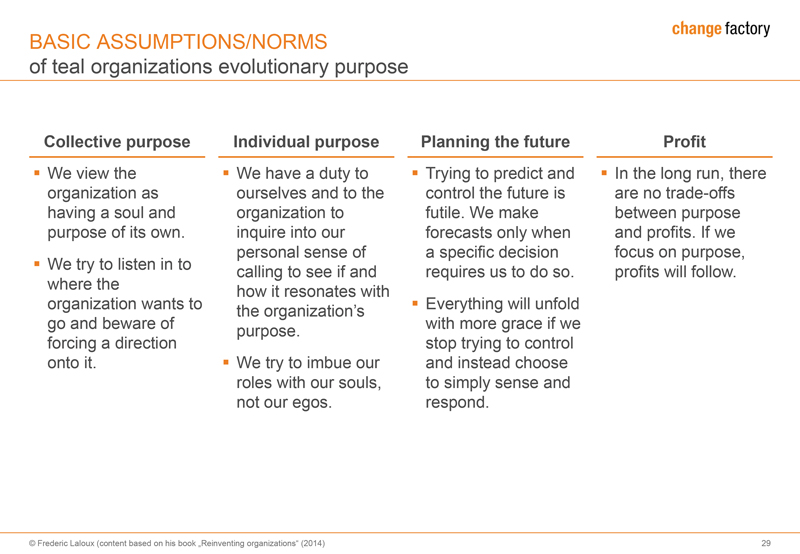
Tying our activities to purpose, both as a company and as a person, takes us from the transactional to the meaningful. As mentioned earlier this is where individual passion is unlocked which drives us to do amazing things.

Lastly, although difficult at first, our team is resisting the urge to command and control and instead is simply sensing and responding as it relates to our business. Keeping our sources of information and receptors open, and being willing to harness the energy of the organization and the external environment, results in a much more graceful and sustainable result. Although this approach may not feed our egos like personal “I did this” command and control accomplishment does, in my opinion it is a higher-level calling to work in harmony with whatever people and systems are in play in any given situation.
John Trimble, PE
President & CEO
John can be contacted at 315-455-2000 or jtrimble@cscos.com.